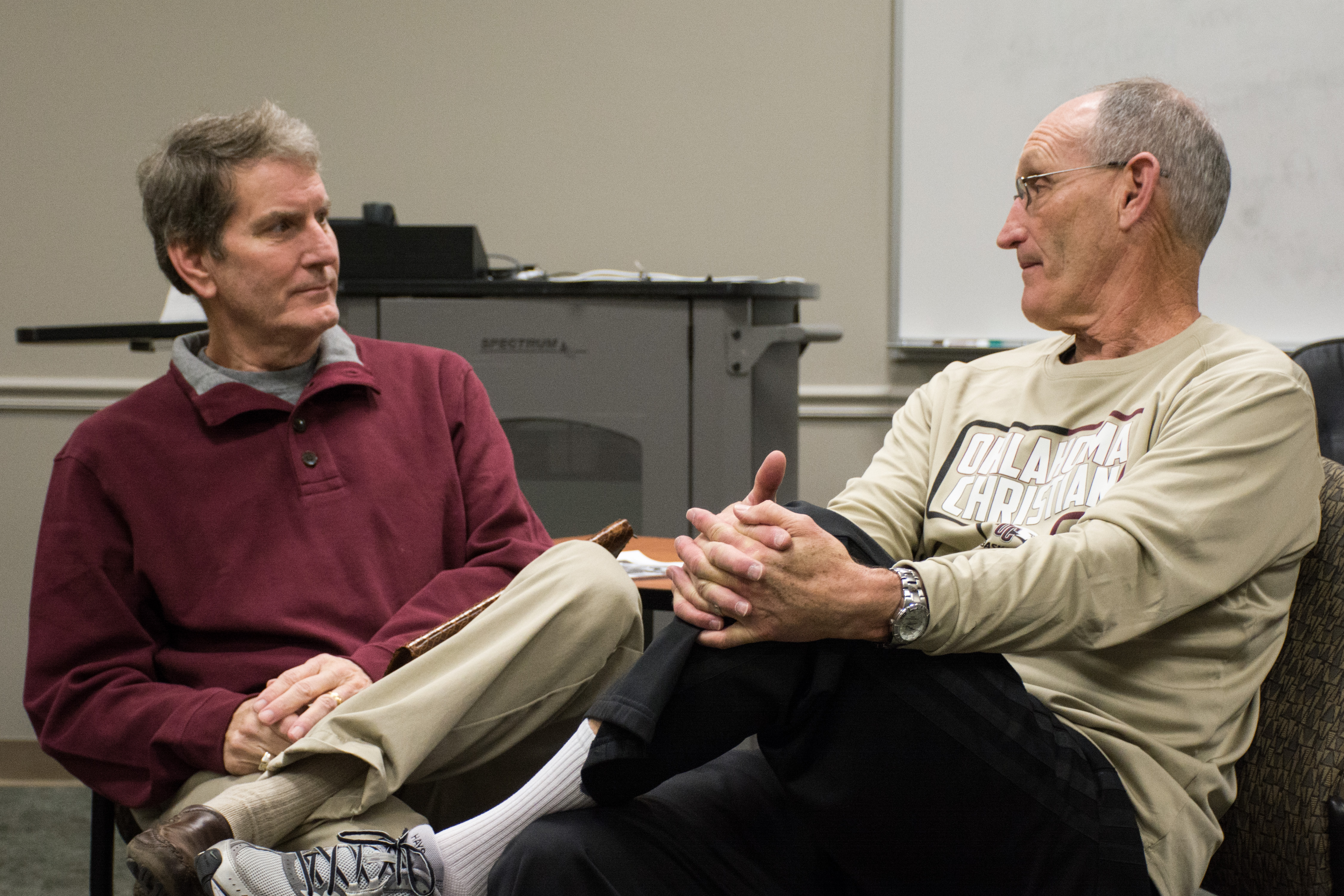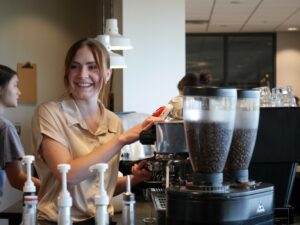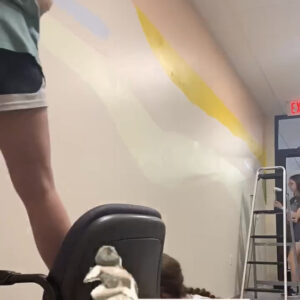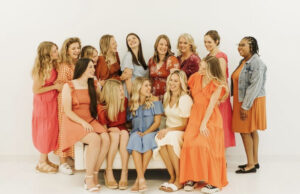By Michaela Lawson and Philip Patterson
Dan Hays, head coach of the Oklahoma Christian University men’s basketball team, announced his resignation from his 33-year post on Jan. 15. Hays sat down with Philip Patterson, distinguished professor of mass communication, to discuss his resignation, career highlights and coaching legacy.
PATTERSON: What’s the difference between retiring and resigning?
HAYS: Retiring is like you’re Roy Rogers or Gene Autry, riding off in the sunset on a horse never to be seen again, going to a lazy chair watching ESPN all day long, hanging around your house. Resigning means that I plan on having some form of a job and livelihood when I leave Oklahoma Christian. So, the difference is, yes, I’m probably going to be through here, but no, I’m not through for a death sentence.
PATTERSON: When did it become apparent to you that now was the year to resign?
HAYS: Well, I’ve been thinking about it for about a year. … There’s only been one number that bothered me in my aging process and about a year ago it hit me: 70. I turned 69 last November and I started thinking, “Do I want to be head coach when I’m 70 years old?” And I couldn’t shake that feeling and I did a little research and there’s not many people coaching basketball at 70 years old; I can only think of a couple. … I started enjoying the games less, and it’s something that I always, always looked forward to, more than anything.
PATTERSON: How has the game changed in 35-40 years?
HAYS: The game is really evolving into a lot more individualistic, one and two-man type settings, highball screens, what they call dribble-drive action. Where the game used to be free flowing, where five guys worked together and the ball moved more. It’s a game played much more on the dribble than on the pass. And it’s really taking shape just like the NBA game, where you’ve got shot clocks and shortened shot clocks. It’s not as free flowing as it used to be and the rules are causing that with 24-second clocks, 30-second clocks. That’s how the game has changed.
PATTERSON: How has the athlete changed?
HAYS: People think that just because we played back in the 60’s that we shot two-handed shots, the other hand free throws and played below the rim; and that’s not the case. I opened our arena in Eastern New Mexico University on the first night with the first dunk in a game, so people were dunking the ball. What’s changed is every night you’ve got five or six games on TV and everything is out there. So many more people are not experiencing the game live, they’re watching it on TV or on their electronics.
Kids are bigger, they specialize earlier and they get more coaching at an early age. What I think is not good is that they’re specializing on particular sports at a young age; I think that’s why we have so many injuries.
PATTERSON: As a player, what was a highlight or two?
HAYS: Captain of the north team in the North-South All-State game, winning a lot of awards in college and playing in national tournaments and thinking I was going to be a NBA draft pick.
That got cut short because I got drafted into the Army. … Back in those days, when they’re hauling you by bus to your hometown to take an Army physical in April, it’s not a good feeling. But, I didn’t go into the service because I took a coaching job – my very first one – in Roswell, New Mexico and my draft board gave me an occupational deferment for teaching in a poverty area. … That’s how I was not in Vietnam. So, that led from one job to another.
PATTERSON: So, you’re in northwest Oklahoma, you hear about the Oklahoma Christian job 33 years ago. What was that change like?
HAYS: Well my wife is giving me a little grief this week because she’s worried we’re going to move. I made it very clear in that article that we are not leaving Edmond. … It’s been a blessing; it really has. When I came here there were some things going on that made it a tough job to start with, but it’s been a great ride.
PATTERSON: How tough was it to build a winning program at a Christian university?
HAYS: Well, I’m a product of a state university. … So I had never had anything to do with a private, Christian university so it was totally new to me even though I was a churchgoer, church of Christ guy. … It was different and I decided, at that point in time, that I had to change some recruiting; you’ve got to be a lot more selective in the kinds of kids you bring in.
PATTERSON: After 33 years worth of team, are there one or two that stand out?
HAYS: Well the first one that stands out was our team that had a junior player … the best player I’ve ever coached, Jay Mauck. We were 21-0, ranked #1 in the nation and you couldn’t get a seat in our gym when Jay was playing. And then he tears his ACL early in the 2nd half of a game. … That was a team I don’t think we would have lost; that could have been my one and only chance to have an undefeated team. He missed the last 11 games of the year and was still named National Player of the Year – that’s how good he was. … I’ve been a bridesmaid many times in my career, gotten close but never really made it to the altar.
PATTERSON: What do you hope people say about you after you’re gone?
HAYS: I just hope people, when they think of me, think of someone who did it right, didn’t win at all cost – even though no one wants to win more than I do. Someone who didn’t bring kids in who didn’t have the capability to get a degree; we graduated almost everybody in all these 33 years. Just someone who did it right and didn’t take shortcuts and people will look at that and – the word I’ve always used is – respect. And hopefully they will think I did a respectful job.
PATTERSON: You have a coaching tree started now. Where are some of your former players coaching?
HAYS: I’ve got a lot of them at colleges. Jarred Merrill is at Mercer University; Brett McDaniel was the head coach at York College for a while; Bill Pink was the head coach at York College and at Cascade College. I’ve got people all over coaching high school, Brady Page in Hennessey, Bryan Jennings at Harrah, Tondrell Durham at Bishop McGuinness. I’m forgetting guys left and right.
PATTERSON: Someone from the Dan Hays coaching tree, what would his practices and games look like?
HAYS: Organized, punctual, nothing done in practice that you wouldn’t do in game. Not drilling for drills sake, drilling for a purpose. Play smart, play hard and play the game right.
PATTERSON: Was your career shortened at all by our decision to go into NCAA, Division II? Has it been hard on you?
HAYS: Yes. And the reason is, I was an NAIA coach – and played NAIA before that – for 40 years. And Division II calendar, scheduling, game management – with media timeouts – are totally against the flow of how I did things. Not near as much practice time.
If I had started as an NCAA coach … if I would have been in this mold from a young age as a coach, it wouldn’t bother me a bit. But when you’ve done something one way for 40 years and then now you’re having media timeouts … I coached on gut feelings and my feel for the game, not looking at the clock waiting for an under 16 timeout. And frankly, I was a better coach before this. So yes, it has shortened it a little bit.























Be First to Comment